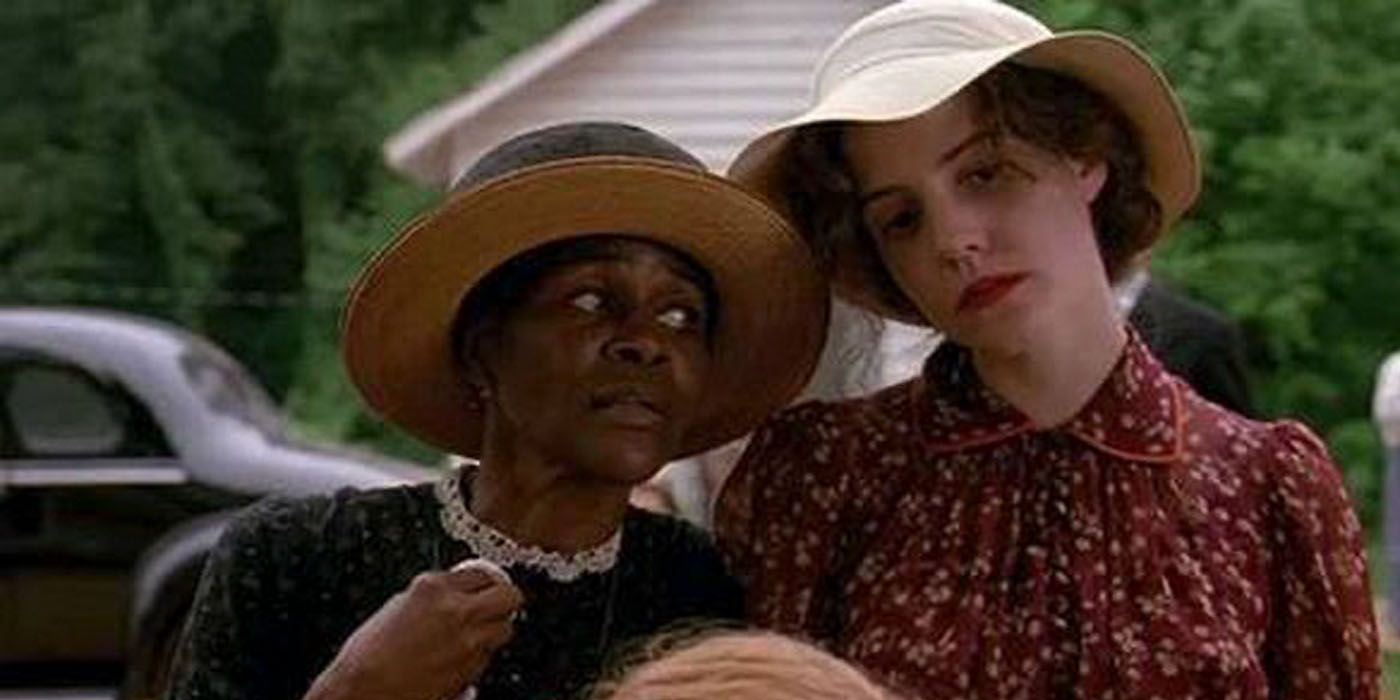
A Pioneering Force in American Film and Television
Cicely Tyson was more than just a supporting actress in Fried Green Tomatoes—she was a revolutionary figure whose career helped redefine how Black women were represented in film and television. Known for her quiet strength, grace, and determination, Tyson brought a powerful presence to every role she portrayed. When she took on the role of Sipsey, the loyal cook and caretaker at the Threadgoode home, she infused the character with dignity and subtle authority, even in limited screen time.
Tyson’s real-life journey, much like Sipsey’s, was marked by resilience in the face of societal injustice, and an unwavering commitment to integrity. Her portrayal of Sipsey may have seemed understated to some, but it was deeply impactful—both in the context of the story and in the legacy it added to her monumental career.
Early Life and the Struggle for Representation
Cicely Tyson was born in Harlem, New York City, on December 19, 1924, to West Indian immigrant parents. Raised in a devoutly religious and modest household, she was initially discouraged from pursuing acting, especially given the limited opportunities for African Americans in the industry during the mid-20th century. But Tyson refused to be limited by societal expectations.
She began her career as a model before transitioning into acting, landing her first significant roles in the 1950s. She quickly made it clear that she would not accept roles that degraded her or misrepresented Black people. Tyson famously turned down many offers because they perpetuated negative stereotypes, choosing instead to wait for characters with meaning and substance—even if that meant working less frequently.
Breakthrough Roles and Career Highlights
Cicely Tyson’s breakout performance came in 1972, when she starred in the film Sounder, earning an Academy Award nomination for Best Actress. The role, in which she played a strong, quietly heroic mother during the Great Depression, won her widespread acclaim and solidified her reputation as an actress of rare depth and conviction.
In 1974, Tyson starred in The Autobiography of Miss Jane Pittman, a television movie that became a cultural landmark. Her performance, which spanned over a century in the life of a former enslaved woman, earned her two Emmy Awards and remains one of the most iconic portrayals in American television history.
She continued to shine in prestigious roles, including Roots, King, and later in projects like The Help, How to Get Away with Murder, and her final film, A Fall from Grace. Throughout her career, Tyson maintained her commitment to representing the strength, dignity, and complexity of Black women on screen.

Sipsey in Fried Green Tomatoes: A Small Role with Powerful Impact
In the 1991 film Fried Green Tomatoes, Tyson played Sipsey, a character who might have been overlooked in a lesser production. But Tyson’s gravitas turned Sipsey into a quietly commanding presence. Working at the Whistle Stop Café and the Threadgoode household, Sipsey is one of the most morally grounded characters in the story.
In a pivotal scene—one of the most haunting in the film—it is revealed that Sipsey killed the abusive Frank Bennett to protect Ruth and her son. The revelation that a seemingly minor character had performed such a profound act of justice added emotional weight and historical resonance to the story. Sipsey did not seek recognition or glory. Her actions were motivated by love, loyalty, and courage—qualities Tyson personified in her real life as well.
A Legacy Beyond Acting
Cicely Tyson was awarded the Presidential Medal of Freedom by President Barack Obama in 2016, in recognition of her contribution to the arts and civil rights. She also received an honorary Academy Award in 2018, and at the age of 88, she became the oldest person to ever win a Tony Award for her performance in The Trip to Bountiful on Broadway.
Tyson’s memoir, Just As I Am, was released in January 2021—just two days before her death. The book chronicles her life of perseverance and purpose, offering insight into her belief that every role she played had to reflect her values and uplift her community.
Honoring Tyson’s Role in Fried Green Tomatoes
While Fried Green Tomatoes focused primarily on the lives of white Southern women, the inclusion of a character like Sipsey—and the choice to cast someone with Cicely Tyson’s legacy—was significant. She represented the generations of Black women whose voices were often silenced in the historical narratives of the American South, yet whose strength and love held families and communities together.
In the final act of the film, as truths are revealed and justice is served in unexpected ways, Sipsey’s quiet heroism emerges as a turning point. Her calm, matter-of-fact admission that she killed Frank—“It was me. I killed him”—is one of the most chilling and empowering lines in the film. She delivered it without dramatics, with simple conviction. It was a moment that changed the course of the story and underscored the unseen sacrifices of Black women throughout history.
A Life That Echoed Through Generations
Cicely Tyson passed away on January 28, 2021, at the age of 96. Her death was mourned around the world, and tributes poured in from artists, leaders, and fans who had been inspired by her decades of principled work. She left behind not just a legacy of powerful performances, but also a template for using one’s career as a platform for dignity, justice, and purpose.
Her role as Sipsey, though not the largest in Fried Green Tomatoes, was emblematic of her life’s work: elevating those whose stories deserved to be told, no matter how hidden or humble they might seem.
